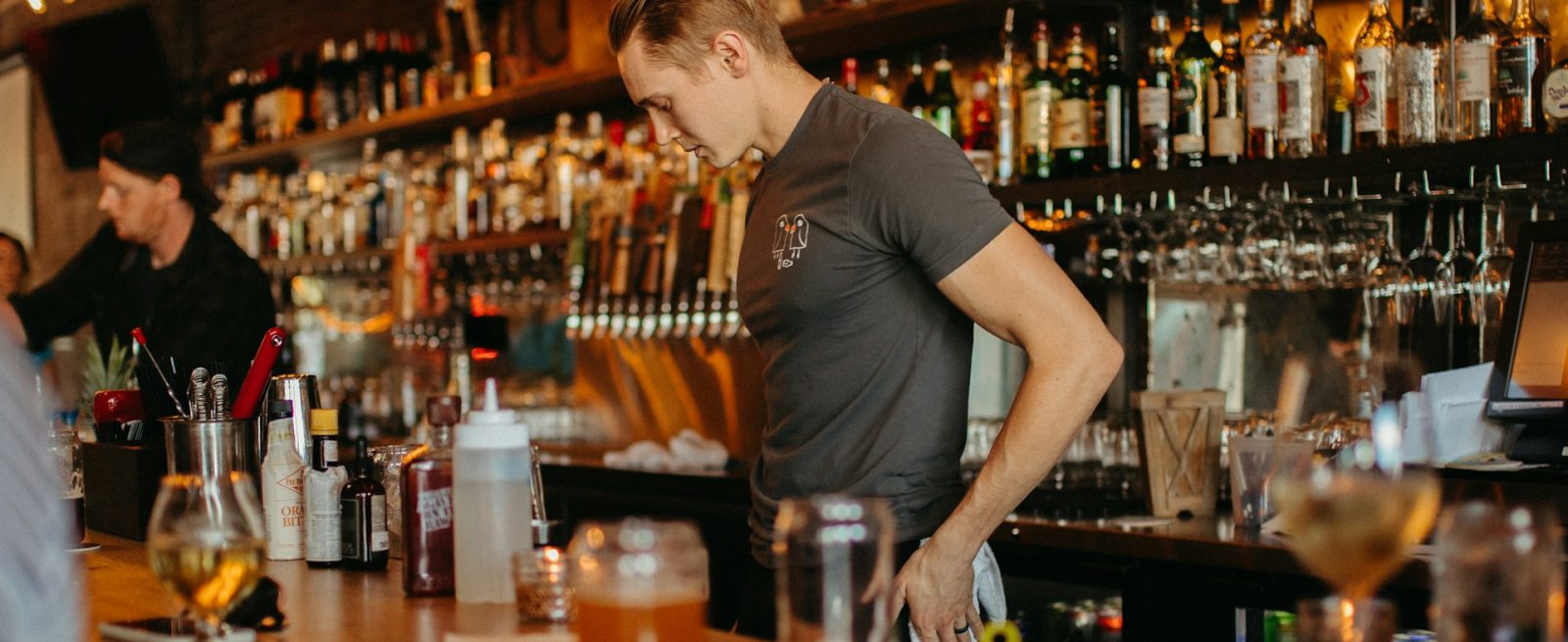Drawing the Line: Guidelines for Refusing Alcohol Service
3 Min Read By Society Insurance
Restaurants face unique risks and responsibilities when serving alcohol. As an alcohol-serving establishment, your business can be especially vulnerable to legal challenges. Do your servers know when to stop serving patrons? Are they trained to recognize the warning signs of intoxication before a situation gets out of hand? Society Insurance shares valuable tips and resources to help your team stay prepared, reduce risk, and maintain a safe environment for everyone.
When Does a Server Have the Right to Refuse Service?
At some point, a restaurant server, bartender, or manager, may need to make the difficult–but necessary–decision to stop serving alcohol to a guest. Below are several valid reasons to refuse alcohol service:
● The guest is underage
● The guest shows visible signs of intoxication or has clearly over-consumed
● The guest is behaving in a disruptive, aggressive, or inappropriate manner
● The guest is harassing staff or other customers
● The restaurant is at full capacity and cannot accommodate additional customers safely
Right to Refuse Service – Steps to Take
If a server or bartender feels the need to refuse alcohol service, the situation should be handled carefully and professionally. The first step is to slow down service and involve a manager right away. Consider offering food and water. Try to slow down service as much as possible by making yourself less available to the patron. If you ever feel uncertain about a guest’s level of intoxication, don’t hesitate to call a manager for assistance. An intoxicated person should never get behind the wheel, as impaired driving carries serious consequences.
What to Say When Refusing Service?
Avoid cutting someone off in front of others if possible. A manager should approach the guest directly and respectfully, ensuring another team member is present for support. Stay calm and stick to the facts–don’t be accusatory or confrontational. A direct approach works best: “I think it’s time to call it a night. We can no longer serve you. Do you have a ride, or would you like me to call a car for you?” Make sure your bartenders and servers are aware of the situation and are instructed to stop serving the guest immediately. There’s no need for negotiation–prioritize safety and responsibility.
Potential Signs of an Intoxicated Person
Recognizing when a guest is intoxicated is crucial to ensuring both their safety and the safety of your restaurant. Here are some signs to look out for:
● Loud or agitated speech
● Ordering drinks rapidly
● Slurred speech
● Stumbling or difficulty walking
● Spilling drinks
● Appearing drowsy or sluggish
● Aggressive behavior
● Bloodshot eyes
Under What Conditions Can a Business Not Refuse Service?
While businesses have the right to refuse service in certain situations, it’s important to understand the protections provided under the Civil Rights Act of 1964. You cannot refuse service based on:
● Race or color
● National origin or citizenship status
● Religion or creed
● Sex or sexual orientation
● Age
● Disability, pregnancy, or genetic information
● Veteran Status
Additionally, always review your state laws, as some states offer additional protections that your business must be aware of and adhere to. Your right to refuse service applies to certain criteria.
Consequences of Over-Serving Customers
Serving alcohol to intoxicated customers can put both the individual server and the business at serious legal and financial risk. Many states have laws in place that allow for prosecution and civil suits against establishments that serve alcohol to visibly intoxicated individuals or minors.
Restaurants are particularly vulnerable to litigation under Dram Shop Liability laws. These laws hold commercial establishments accountable if they serve alcohol to intoxicated patrons or minors who then go on to cause harm or death to themselves or others. Most states have some form of dram shop law in effect, meaning that your restaurant could face legal action if a guest causes harm after being over-served.
The Importance of Regular Training for Employees
To protect your business, employees, and customers, it’s important to implement regular and recurring training on alcohol service, including how to handle intoxicated patrons. Society Insurance has a partnership in place that provides discounts for Society policyholders to use any service offered by ServSafe–this includes alcohol service training.
This information is provided as a convenience for informational purposes only. This information does not constitute legal or professional advice and does not establish compliance with any law, rule or regulation.


